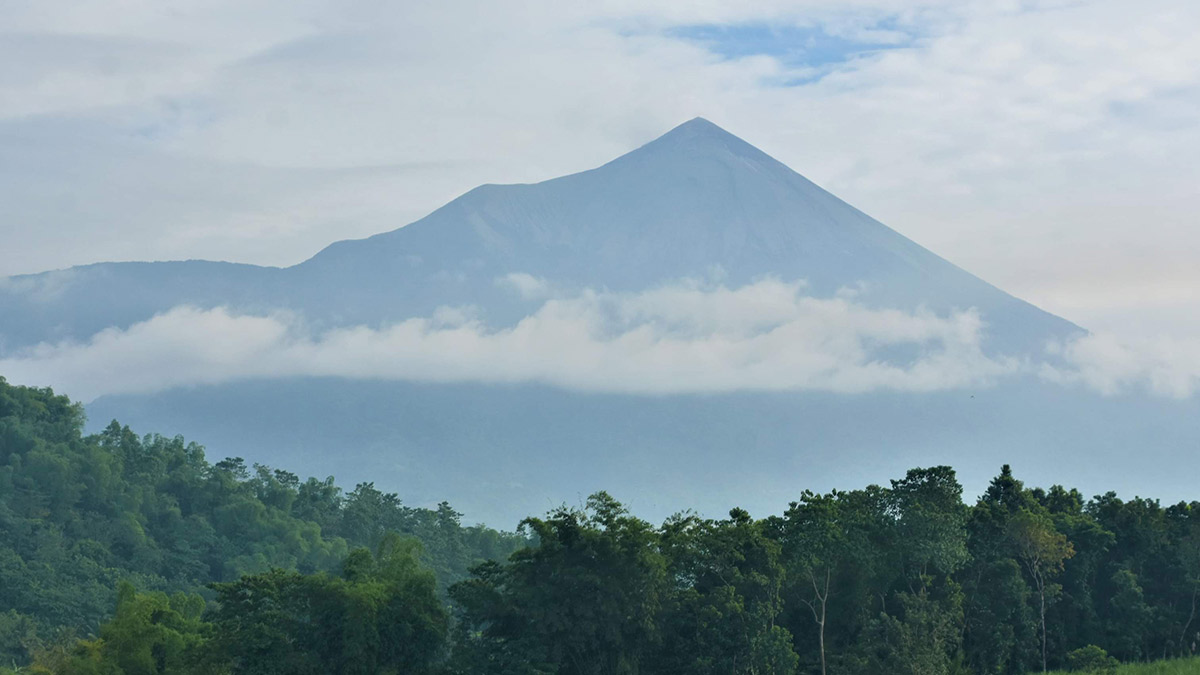
RESTIVE Kanlaon Volcano looks calm in this aerial photo taken on Monday but it remains restive and still under alert level 2, the Philippine Institute of Volcanology and Seismology says in a briefing on Monday. —RICHARD MALIHAN/CONTRIBUTOR
BACOLOD CITY — A total of 288 volcano-tectonic or VT earthquakes were recorded at Mt. Kanlaon since midnight Tuesday, Sept. 10, according to the Philippine Institute of Volcanology and Seismology (Phivolcs).
In its 11 a.m. report, Phivolcs said these earthquakes occurred at depths of between 0 to 9 kilometers beneath the northeastern flanks of the volcano. The strongest events were felt at Intensity 2 in some villages of Canlaon City, Negros Oriental.
Some residents of Bago City reported rumbling sounds, while those in a few villages in Bago, La Carlota, and Canlaon cities reported strong sulfur fumes.
VT earthquakes are caused by rock fracturing processes and the increase in VT activity suggests progressive rock fracturing beneath the volcano as rising magma rises towards the surface.
Phivolcs has reminded the public that Alert Level 2 (increasing unrest) is in effect for Mt. Kanlaon. The current seismic activity may lead to eruptive unrest and an increase in the alert level.
The public is strongly advised to be ready and vigilant and avoid entering the four-kilometer radius Permanent Danger Zone (PDZ) to minimize risks from volcanic hazards, such as pyroclastic density currents, ballistic projectiles, rockfall, and others.
“In case of ash fall events that may affect communities downwind of Kanlaon’s crater, people should cover their nose and mouth with a damp, clean cloth or dust mask,” Phivolcs said.
Civil aviation authorities have been asked to advise pilots to avoid flying close to the volcano’s summit as ash and ballistic fragments from sudden eruption can be hazardous to aircraft.
Communities living beside river systems on the southern and western slopes, especially those that have already experienced lahars and muddy streamflows were advised to take precautionary measures when heavy rainfall over the volcano has been forecast or has begun.